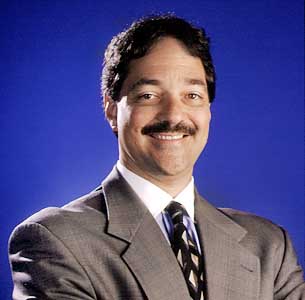 In a unanimous decision, the Supreme Court overturned the conviction of the defunct Arthur Andersen accounting firm for destroying documents relating to its client, Enron Corp., before Enron collapsed into chapter 11 bankruptcy in late 2001.
In a unanimous decision, the Supreme Court overturned the conviction of the defunct Arthur Andersen accounting firm for destroying documents relating to its client, Enron Corp., before Enron collapsed into chapter 11 bankruptcy in late 2001.
Chief Justice Rehnquist, writing for the Court, said that the conviction was the product of defective jury instructions at trial that were too vague and broad for jurors to determine correctly whether Andersen obstructed justice.
Justice Rehnquist noted that jurors were instructed to convict Andersen if the accounting firm had an “improper purpose,” such as an intent to impede or subvert fact-finding in an “official proceeding.”
Thus, Justice Rehnquist reasoned, jurors were instructed to convict even if Andersen mistakenly thought it was acting legally. At trial, Andersen argued that employees who shredded tons of documents followed the policy and there was no intent to thwart the SEC investigation. On a threshold basis, Justice Rehnquist analyzed the case in the following manner:
In this case, our attention is focused on what it means to “knowingly . . . corruptly persuad[e]” another person ” with intent to . . . cause” that person to “withhold” documents from, or “alter” documents for use in, an “official proceeding.”
We have traditionally exercised restraint in assessing the reach of a federal criminal statute, both out of deference to the prerogatives of Congress, . . . and out of concern that ‘a fair warning should be given to the world in language that the common world will understand, of what the law intends to do if a certain line is passed. [citations ommitted].
Such restraint is particularly appropriate here, where the act underlying the conviction — “persua[sion]” — is by itself innocuous. Indeed, “persuad[ing]” a person “with intent to . . . cause” that person to “withhold” testimony or documents from a Government proceeding or Government official is not inherently malign. Consider, for instance, a mother who suggests to her son that he invoke his right against compelled self-incrimination, . . . or a wife who persuades her husband not to disclose marital confidences. [citations ommitted].
Nor is it necessarily corrupt for an attorney to “persuad[e]” a client “with intent to . . . cause” that client to “withhold” documents from the Government.
In a later part of the opinion, Justice Rehnquist chides the Government regarding its argument about Congress’ alleged meaning of the key phrase in the criminal statute under scrutiny:
The Government suggests that it is “questionable” whether Congress would employ such an inelegant formulation as “knowingly . . . corruptly persuades.” . . Long experience has not taught us to share the Government’s doubts on this score, and we must simply interpret the statute as written.
And in discussing the defective instructions given to the jury at trial, Justice Rehnquist notes that following:
[T]he jury instructions at issue simply failed to convey the requisite consciousness of wrongdoing. Indeed, it is striking how little culpability the instructions required. For example, the jury was told that, “even if [Andersen] honestly and sincerely believed that its conduct was lawful, you may find [Andersen] guilty.” . .The instructions also diluted the meaning of “corruptly” so that it covered innocent conduct. . .
The ruling is a stunning setback for the Department of Justice generally and the Enron Task Force specifically, which pursued a dubious prosecution of Andersen that effectively terminated a going concern that employed 30,000 persons in the U.S. (in comparison, Enron’s implosion cost approximately 5,000 employees their jobs).
That economic carnage was a stark reminder of the increasingly common governmental regulatory practice of criminalizing merely questionable business transactions, a practice that has been played out over and over again in other aspects of the Enron case and, more recently, in regard to the governmental investigations into American International Group Inc.
University of Illinois Law School Professor Larry Ribstein, a longtime critic of governmental regulation through criminalization of merely questionable business transactions, places the Supreme Court’s decision in the perspective of the damage done by the government’s prosecution:
[I]n addition to destroying value and lives, it significantly reduced competition in the auditing industry and thereby impeded efforts to engage in the cleanup the pro-regulatory folks have thought is oh so necessary. Now it turns out the whole thing was a legal as well as policy mistake. More generally, this is yet another nail in the coffin of the misbegotten idea that corporate criminal liability is the way to better markets.
Professor Henning also has insightful thoughts about the Anderson decision here and here.
So, the Supreme Court reminds us that the rule of law does not allow the government to abuse the law to engage in popular prosecutions of unpopular businesspeople. The Anderson decision cannot bring that firm back to life or give back those lost jobs and wealth. That is a terrible injustice. But it does provide a measure of protection to us from the government abusing the law and using its overwhelming power to pursue wrongful prosecutions against the unpopular persons of the moment. And for that, I am thankful.
Like this:
Like Loading...
 One of the most difficult lessons to learn in becoming a wise counselor is to say “no” to a good client.
One of the most difficult lessons to learn in becoming a wise counselor is to say “no” to a good client.

 This NY Times article
This NY Times article
 Former billionaire Russian oil magnate
Former billionaire Russian oil magnate 

